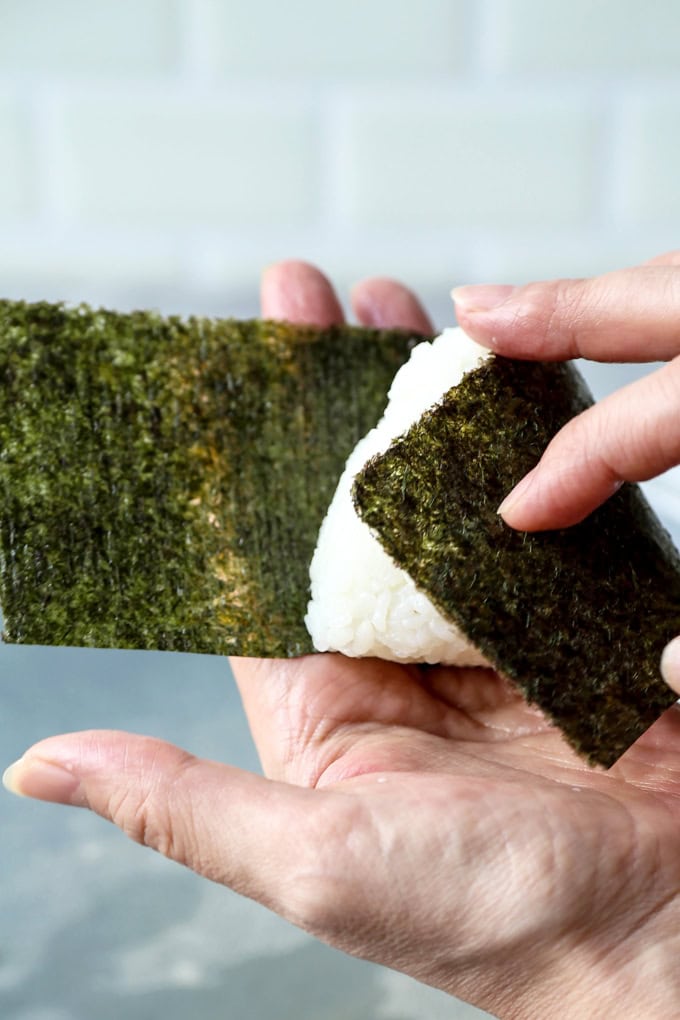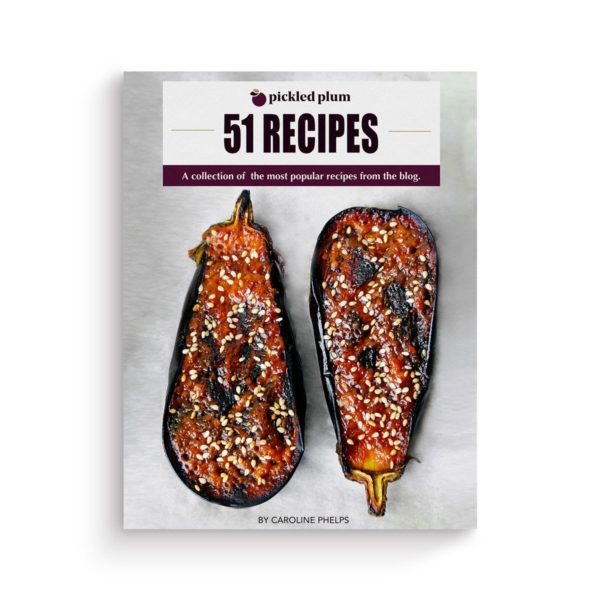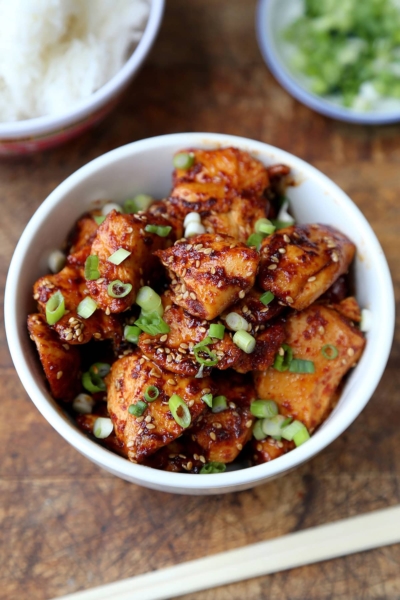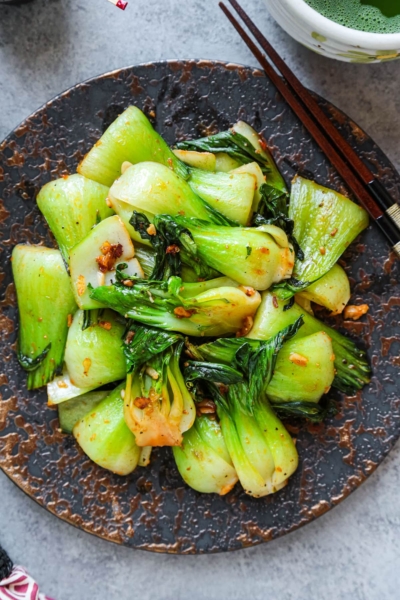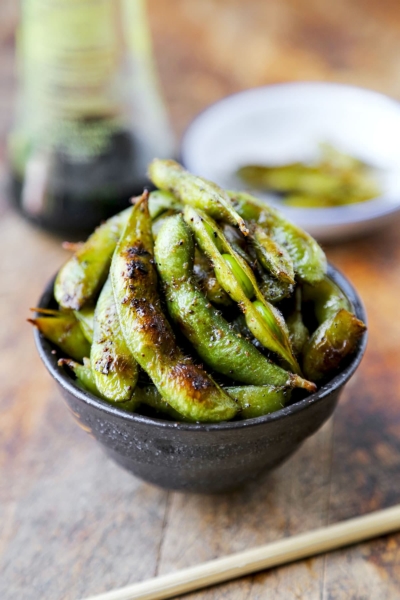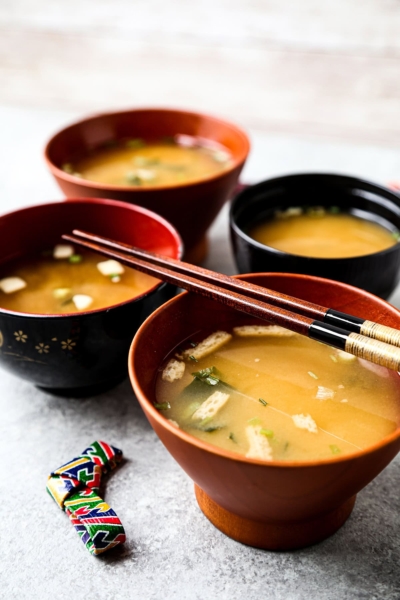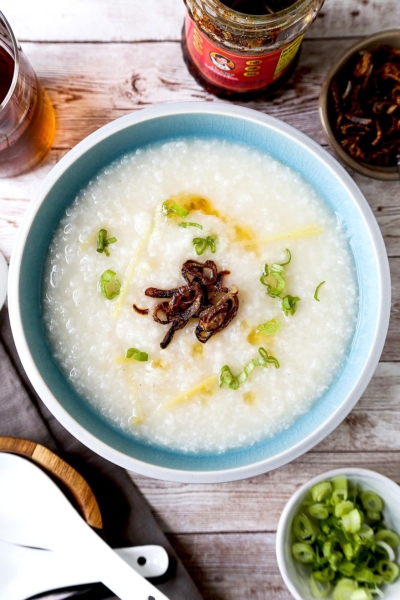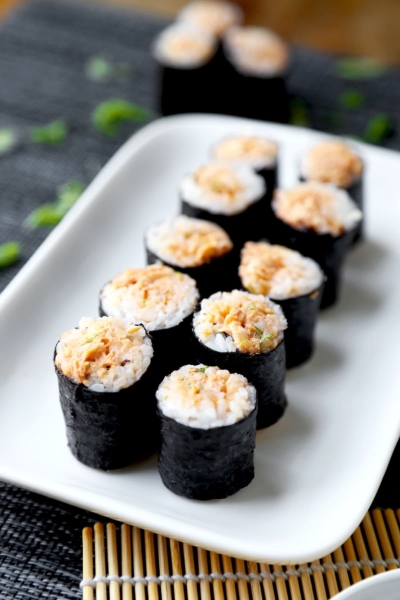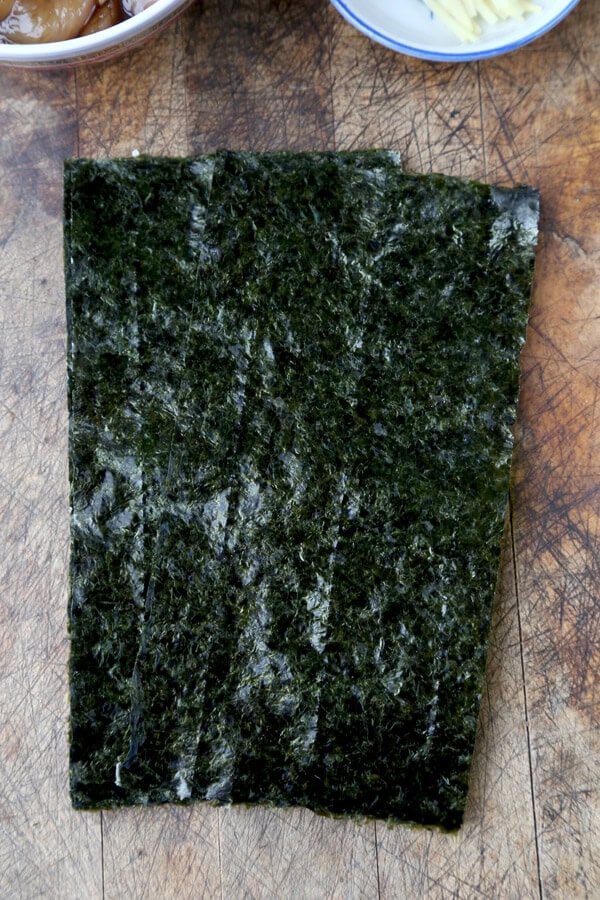
Nori is everywhere in the Japanese food lexicon. You may have seen these thin sheets used in everything from sushi rolls to furikake. Let’s take a deeper look at this Japanese pantry staple!
What is Nori?
Nori (海苔) is an edible seaweed, dried and pressed into thin sheets. It is commonly used as a flavor agent or garnish in soups and noodle dishes – and as a wrap for maki (sushi rolls) and onigiri (Japanese rice balls).
Furthermore, it can be shredded and mixed with ingredients such as bonito flakes and sesame seeds to create furikake, a rice topping that’s very popular in Japan.
Unlike kombu, which is thicker and thrives in deeper waters, nori is harvested in the shallows and was originally developed in the mid-1700s by traditional papermakers who endeavored to press seaweed into sheets of edible paper.
There are multiple grades of nori, ranging from thicker and almost chewy at the lower end – all the way to delicate, paper thin shin nori at the pinnacle.
Most of what we see at sushi restaurants in the States is roasted before packaging. This is called yaki-nori.
What does nori taste like?
Nori lends a toasted, briny hint of the sea to the flavor profile of the dishes in which it is used. Umami – that famous savory fifth-taste – is also evident, along with slightly mineral, earthy notes.
The texture tends to be brittle and pliantly dry when eaten on its own – and it softens considerably when used in soup, added as a pasta topping or wrapped around rice.
Recipes using nori:
Where to buy nori
You’ll have no trouble finding nori at most Asian grocery stores. However, even many Western stores stock nori sheets on the shelves these days.
And those awesome little nori snack packs are probably right by the check out counter, beckoning you to grab a couple as a sensible snack.
If you can’t seem to find nori at your normal shopping spots, you can always pick it up on Amazon.
How to store Nori
Store your nori in a dry spot to preserve its perfect crackle! A tiny bit of moisture is detrimental to the brittle, dry umami of your yaki-nori.
